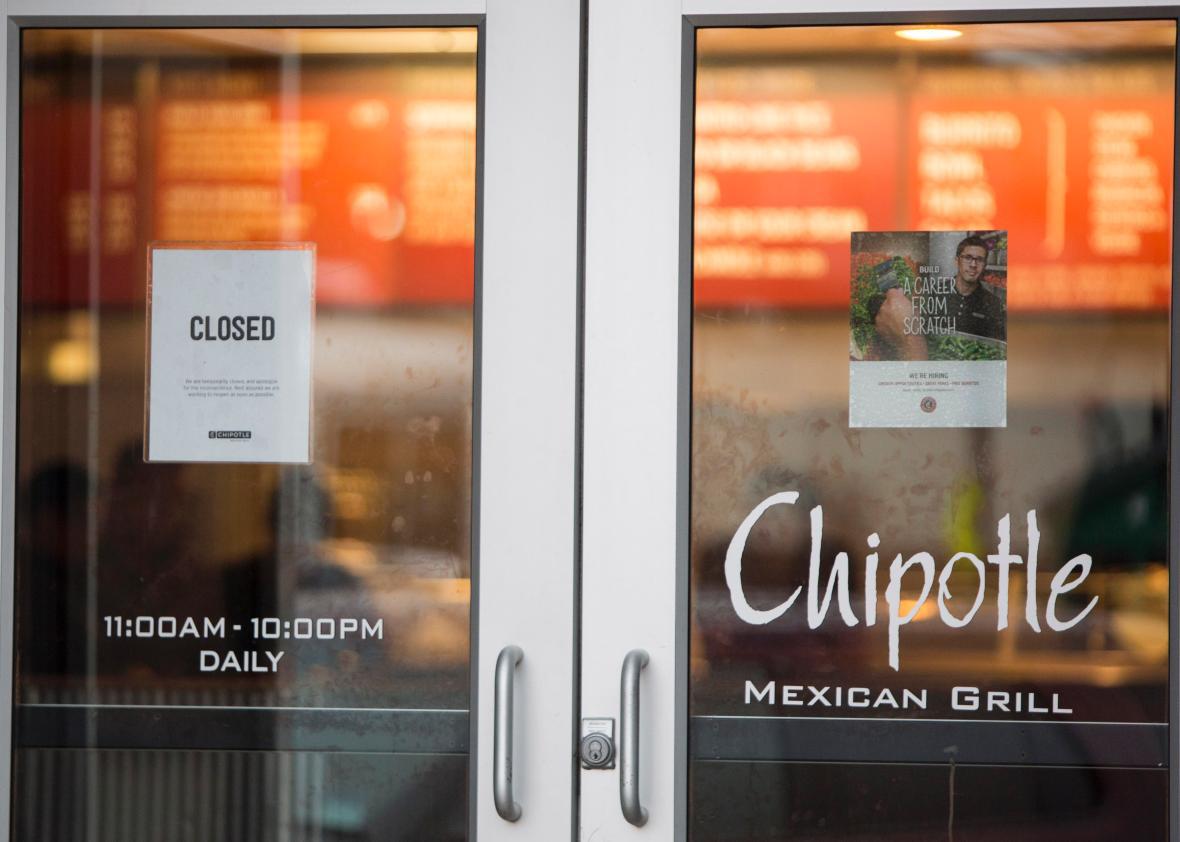Chipotle Mexican Grill owes $550,000 in damages to a former employee who was fired from a restaurant in downtown Washington, D.C., because she was pregnant.
Doris Garcia Hernandez was working for the Mexican fast-casual chain in 2011, at the 1837 M Street NW location, where Washingtonians flock from busy K Street and Dupont Circle for their paving stone-sized burritos and their extra guac. When Garcia Hernandez informed her manager—who is referred to in the suit she filed in 2014 only as “David”—he told her “that she had to announce to every employee in the store when she was going to the bathroom and that David would have to approve her bathroom breaks so that he could cover her work position for her,” according to the suit. The suit added, “David did not impose these requirements on non-pregnant employees.”
Garcia Hernandez lost her job over a pre-natal appointment with her doctor, as the Washington Business Journal reported. She asked David repeatedly if she could leave early to make her appointment time; when he ignored her, she left anyway. The next day, he fired her “in front of other employees in the main area of the restaurant,” according to the Journal. Now, a D.C. jury has determined that the manager’s behavior amounted to discrimination against Garcia Hernandez due to her pregnancy.
Under the federal Pregnancy Discrimination Act, employers are forbidden to factor a woman’s pregnancy into “hiring, firing, pay, job assignments, promotions, layoff, training, fringe benefits, such as leave and health insurance, and any other term or condition of employment.” An employer may also be required to provide “reasonable accommodation” for medical conditions that develop due to pregnancy, and to treat the pregnant worker “in the same way as it treats any other temporarily disabled employee.” Harassing an employee for using the bathroom and publically firing her for going to a doctor’s appointment did not meet this standard in the eyes of the jury.
Chipotle is having a bad couple of years. In late 2015, it sickened hundreds of customers with products that contained E. coli bacteria or noroviruses; this June, it was forced to put its chief creative and development officer on administrative leave after he was charged with drug possession. Company stock has looked better.
Amidst all this, Garcia Hernandez hasn’t been the only woman to file suit against the chain. A former employee at a Los Angeles location named Ariana Castaneda did so in March, alleging sexual harassment as well as discrimination based on a medical condition that necessitated frequent urination. One manager allegedly “would consistently order her work uniforms several sizes too small,” according to Eater, while another “would forcibly try to hug her and place his hands under her shirt on her back and stomach after touching a cold surface.” In February, a federal grand jury in Cincinnati, Ohio, ordered the company to pay nearly $200,000 each to three former general managers who accused their supervisors of gender discrimination culminating in the unjust termination. One had been fired shortly after returning from maternity leave.
Together, these cases hint at a pattern of sexual harassment and pregnancy discrimination behind the counter at the fast-casual chain. As Jonathan Smith of the Washington Lawyers’ Committee, which helped Garcia Hernandez file her case, told the Washington Business Journal: “We are grateful to the jury for vindicating the rights of our client to be free from pregnancy discrimination and to send a message to other employers that this practice is intolerable.”
